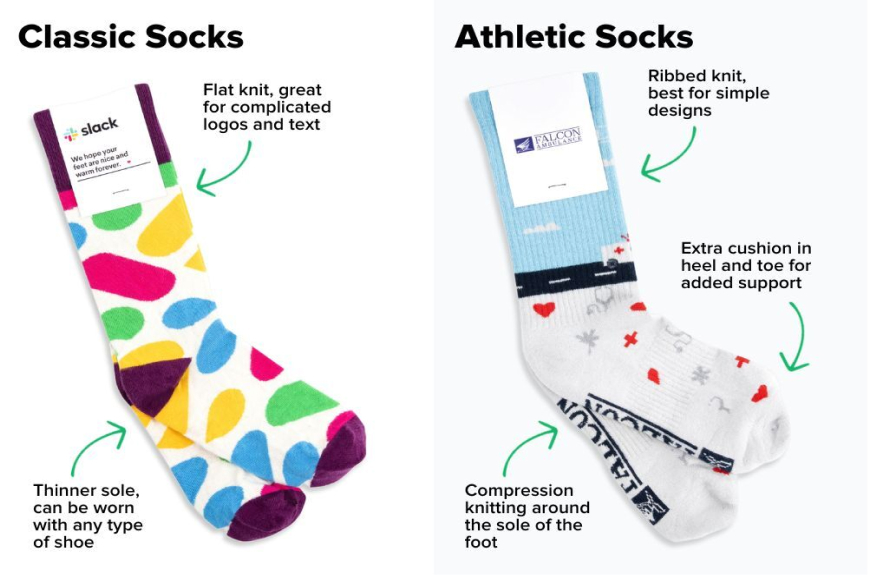Hip surgery is a significant procedure, and proper post-operative care is crucial for a smooth recovery. One important aspect of this care is the use of compression socks. These specialized garments help improve blood circulation, reduce swelling, and minimize the risk of blood clots. However, many patients wonder when it's appropriate to stop wearing them. Let's explore this topic in detail.
Understanding the Purpose of Compression Socks
Compression socks are designed to apply pressure to your lower legs, helping to maintain blood flow and reduce discomfort and swelling. After hip surgery, these custom sports socks play a vital role in preventing deep vein thrombosis (DVT), a potentially dangerous condition where blood clots form in the deep veins.
The Recommended Duration
The length of time you should wear compression socks after hip surgery can vary depending on several factors. Generally, most surgeons recommend wearing them for at least 2-6 weeks post-surgery. However, some patients may need to wear them for a longer period, especially if they have a higher risk of developing blood clots.
It's important to note that the specific size and fit of your compression socks can impact their effectiveness. Ensure you're wearing the correct size for optimal benefits.
Factors Affecting Duration
Several factors can influence how long you should continue wearing compression socks:
- Your overall health and medical history
- The type of hip surgery performed
- Your mobility level post-surgery
- Your risk factors for developing blood clots
Your surgeon will consider these factors when providing recommendations specific to your situation. Some patients may be advised to wear compression socks for several months, particularly if they have a history of blood clots or other circulatory issues.
Transitioning Away from Compression Socks
As you recover and become more mobile, your need for constant compression may decrease. However, it's crucial not to stop wearing them abruptly. Instead, gradually reduce the time you wear them each day. You might start by removing them for short periods while you're sitting or lying down, and slowly increase these periods over time.
Many patients find that athletic socks provide a comfortable transition from compression socks. While they don't offer the same level of compression, they can still provide some support and comfort during your recovery.
Listening to Your Body
During your recovery, pay attention to how your legs feel. If you experience increased swelling or discomfort when you're not wearing the compression socks, it may be a sign that you're not ready to stop wearing them completely. Some patients report that they continue to wear compression socks for several months, especially during long periods of sitting or standing.
The Importance of Follow-up Appointments
Regular follow-up appointments with your surgeon are crucial during your recovery period. These visits allow your doctor to assess your progress and make adjustments to your recovery plan, including recommendations about compression sock use. Don't hesitate to discuss any concerns or questions you have about wearing compression socks during these appointments.
Long-term Use of Compression Socks
While most patients will eventually stop wearing compression socks full-time, some may find benefits in continued use. For example, wearing compression socks during long flights or extended periods of sitting can help maintain good circulation, even long after your surgery.
Comparing Options
As you transition away from medical-grade compression socks, you might want to explore other options. Some patients find that athletic crew socks provide a comfortable middle ground, offering some support without the intense compression of medical-grade socks.
Wrapping Up
The decision to stop wearing compression socks after hip surgery should be made in consultation with your healthcare provider. While general guidelines suggest wearing them for 2-6 weeks post-surgery, your individual needs may vary. Remember to transition slowly, listen to your body, and continue to prioritize your circulatory health even after you've stopped wearing compression socks full-time. With proper care and attention, you'll be well on your way to a successful recovery.


